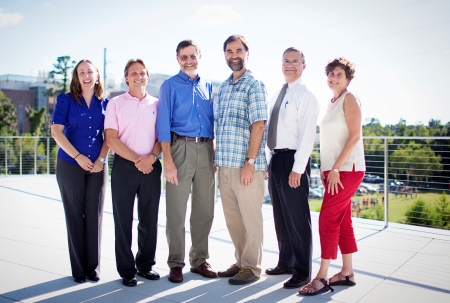
To help chart the course of biomedical discovery in the newest of the “-omics” frontiers, the University of Florida today launched the Southeast Center for Integrated Metabolomics with a five-year, $9 million grant from the National Institutes of Health.
Part of the UF CTSI and led by principal investigators Arthur S. Edison, Ph.D., and Richard A. Yost, Ph.D., the Southeast Center for Integrated Metabolomics (SECIM) brings together expertise and resources from multiple colleges and units at UF as well as Sanford-Burnham Medical Research Institute, the National High Magnetic Field Laboratory at Florida State University, Ohio State University, the University of Georgia, Imperial College London, the University of Geneva and industry partners IROA Technologies and Thermo Fisher Scientific.
SECIM provides comprehensive and complementary resources for clinical and basic science metabolomics studies. SECIM is developing an integrated metabolomics service to provide high-quality data, user-friendly statistical analysis tools, training and pilot funding to help users get the most out of a metabolomics study.
With the new grant, SECIM joins a consortium of five other regional resource centers and a national coordinating center supported by the NIH Common Fund, which in 2011 established a program to spur metabolomics research in the United States. The NIH Common Fund grant to UF builds on infrastructure created with funding from UF and the university’s Clinical and Translational Science Award from the NIH National Center for Advancing Translational Sciences.
Learn More
- UF news release, Sept. 18, 2013: UF receives grant to join national metabolomics consortium
- Southeast Center for Integrated Metabolomics website: www.secim.ufl.edu
- Chemical & Engineering News, Nov. 4, 2013: NIH Metabolomics Centers Ramp Up

